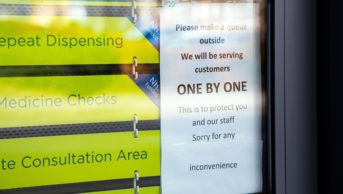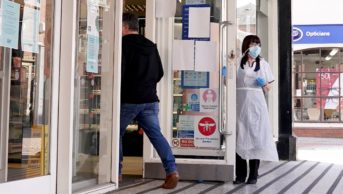
Nic Bunce / The Pharmaceutical Journal
There is genuine concern among pharmacists and the pharmaceutical industry that medicines stock shortages will worsen post Brexit.
At a Conservative Science and Technology Forum (CSTF) meeting with health minister Lord James O’Shaughnessy in October 2018, I proposed that the law should be changed to enable community pharmacists to make therapeutic substitution as well as generic drug switching. This precedent was established during the swine flu pandemic, and should now be reconsidered to ensure continuity of treatment.
The government is already working with the pharmaceutical industry to increase medicines storage capacity pre-March 2019, but we need community pharmacists to be prepared too. We community pharmacists are at the frontline — patient facing, giving advice, ensuring medicines are taken correctly — and we need to be better empowered to act in the event of medicines shortages. At the CSTF, I used the example of substituting Otomize ear spray for Sofradex ear drops in the event that Sofradex was unavailable, with the community pharmacist endorsing the prescription accordingly. Both are suitable for the treatment of eczematous inflammation in otitis externa, as are a number of other ear drops, and it is a category which has experienced significant stock shortages over recent years. The patient would be fully involved in the decision making process and the GP notified. Indeed, it is not unknown for the GP to contact the pharmacy to establish which products are available and ask the community pharmacist to make a recommendation for substitution.
In hospital, during ward rounds, once diagnosis has been established by the medical team, the hospital pharmacist will often recommend the most appropriate medication. This now needs to happen in community pharmacy. The community pharmacist would have to be aware of any differences in drug tariff prices, but this is well within the community pharmacist’s competency. Currently, when this type of situation has arisen, as it invariably does, Community pharmacists have to contact the GP to obtain a replacement prescription (Rx). Some GP’s will issue a new Rx by electronic prescription service and the transaction can be relatively straightforward — assuming it takes less than the 30 minutes that it often does to get through to the surgery! However, many GPs still insist on the patient returning to the surgery to collect the new Rx, inconveniencing the patient and delaying the start of their treatment.
Of course if the Rx is written generically the community pharmacist can provide either the generic or a brand equivalent, so it makes sense to enable this in the opposite direction. We will have to be mindful of those medicines which are not directly equivalent, like some epilepsy medicines or where the patient has a genuine intolerance to certain excipients, or controlled drugs, but this should be within a community pharmacist’s competency and training. The biological medicines or biosimilars category is not suitable for substitution, as automatic substitution of brands is not appropriate for biologics. However, the majority of categories are suitable for inclusion. Indeed this type of community pharmacist-enabled substitution could benefit patients even when supply is not the issue. For example, following a medicines use review where it might be obvious to the community pharmacist that the patient would be more compliant and better efficacy obtained with a breath actuated inhaler rather than an metered-dose inhaler, providing better clinical satisfaction and improved patient care.
So, in my campaign to better utilise the clinical skills of community pharmacists, therapeutic substitution of medicines by community pharmacists to improve patient care will be a priority. As will enabling community pharmacists to populate the GP-held patient record through interoperability of the GP and community pharmacist systems. That way, when we make the therapeutic substitution, we can directly inform the GP in real time. No more messing around with 30-minute long phone calls to the surgery.


